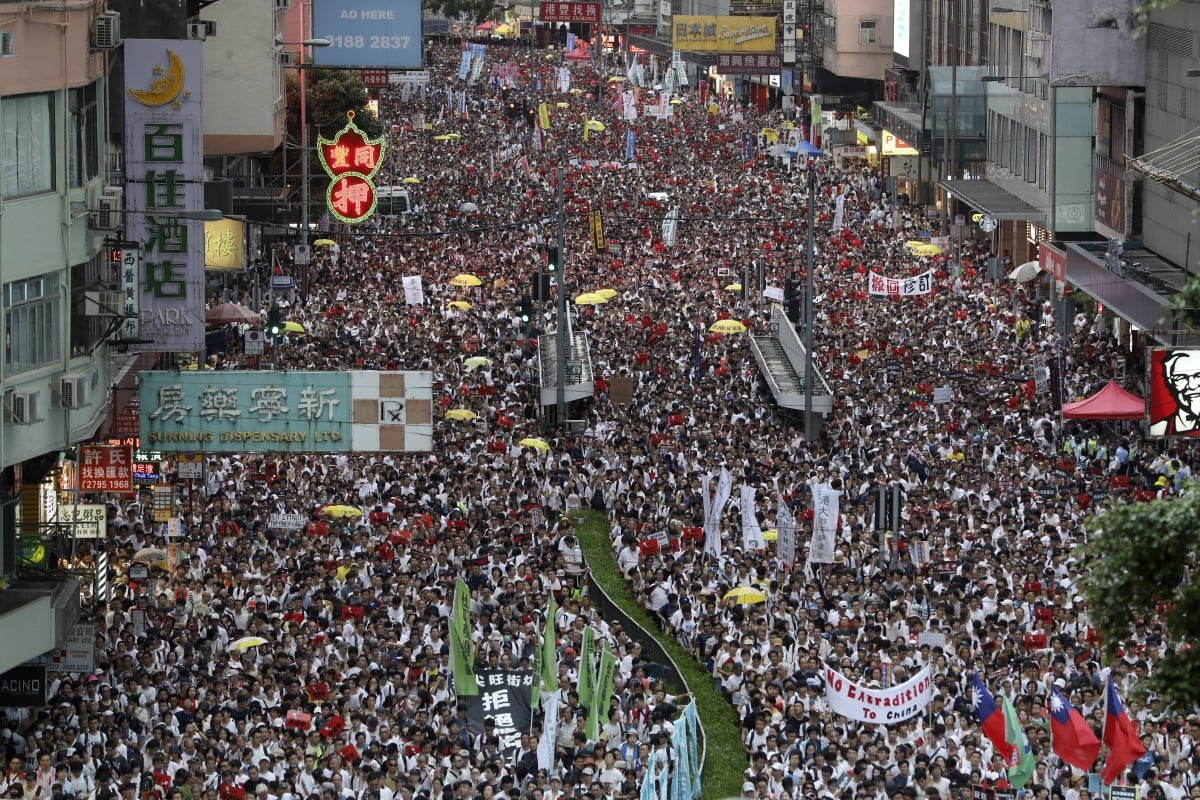B.C. experts predict ‘mass migration’ of expats from Hong Kong over extradition bill protests

A Vancouver immigration lawyer and other experts are warning the Canadian and B.C. governments to prepare for a “mass migration” of expats fleeing Hong Kong as protests against a controversial extradition bill continue to rock the territory.
The proposed law would make it easier for suspects from the semi-autonomous Chinese territory to be extradited to mainland China to face trial.
Protesters and critics say the proposal will erode Hong Kong’s judicial independence by allowing suspects, including political enemies, to face vague charges and harsh sentences in Beijing.
WATCH: Officers ‘rightfully used force’ in violent Hong Kong protests: Police
Dozens of people have been hurt and at least 11 people arrested since Sunday as police used rubber bullets and tear gas to drive back the protesters, who forced the government to suspend talks on the bill Wednesday.
With all that unrest, immigration lawyer Richard Kurland said many Canadians who live and work in Hong Kong may feel it’s safer to head back home, which B.C. is woefully unprepared for.
“B.C.’s infrastructure is at risk with a sudden mass migration of Canadians or permanent residents living in Hong Kong,” he said Thursday. “Education, roads, hospitals, property prices would be immediately impacted.”
Those property price spikes would likely affect Vancouver’s high-end real estate market, Kurland said, as many of those returning would be from Hong Kong’s millionaire class.
“While prices may be down, that market could see another spike up if those millionaires feel they need to protect their cash and exercise their rights to come home,” he said.
WATCH: (Aired June 12) Hong Kong protests erupt into chaos, violence in clash with police
Kurland pointed out those and other expats have a legal right to re-enter Canada whenever they wish, and do not need a visa to do so.
He added that he and other immigration lawyers are preparing themselves for a spike in travel document applications, permanent-resident card renewals, and study and work permits.
Global Affairs Canada estimates roughly 300,000 Canadians are calling Hong Kong home, but it’s not clear how many are based in B.C.
The links between the territory and Canada go both ways: over 200,000 immigrants identified as coming from Hong Kong in the 2016 census, 74,210 of whom live in B.C.
Many of those immigrants came to Canada during the 1990s before the U.K. handed control of Hong Kong to China in 1997, with 16,000 arriving in B.C. alone.
Toronto and Montreal faced a similar issue when it was forced to absorb tens of thousands of citizens fleeing Lebanon during the decades-long civil war that started in the mid-1970s.
WATCH: (Aired June 10) Protesters in Vancouver rally against China’s extradition bill
Kurland said Canada needs to “dust off” the strategic plans it used during both of those surges in arrivals.
“Canada has the potential to guard against the sudden arrival of tens of thousands of people who are exercising their right — not their privilege — to return to Canada,” he said.
Canada’s Foreign Affairs Minister Chrystia Freeland has expressed concern about the protests and the proposed legislation itself, which earned a strong rebuke from China’s embassy in Canada Thursday.
Demonstrations have been ongoing in Vancouver and around the world in support of the protests in Hong Kong, led largely by Hong Kong Canadians who fear being caught up in extraditions if the law passes, which it’s expected to by the end of the month.
Ken Tung from the Civic Education Society in Vancouver, who was born in Hong Kong, said the law itself will quickly make people living in Hong Kong question their safety.
“The world is watching China, the world is watching Hong Kong,” he said. “I think it’s a big challenge for Hong Kong people if this law is passed.”
READ MORE: Hong Kong Canadians march on Vancouver’s Chinese consulate to protest proposed extradition law
He added the fight over the proposed law shows the tension between the Westernization of Hong Kong and the encroaching influence of Beijing, which the territory’s government is aligned with.
Tung said he’s already been noticing Canadians returning home from Hong Kong over the years, and also predicts many more will do the same in the near future.
“They’re buying new homes, they’re getting jobs and starting businesses,” he said. “There will be more.”
WATCH: (Aired June 11) Protesters disrupt Hong Kong legislature president’s news conference
In a statement Thursday, Vancouver East MP and Hong Kong native Jenny Kwan said watching the violent protests “breaks my heart,” and took aim at the government’s ignoring of its people’s calls to withdraw the bill.
“It is utterly unfathomable for a government with any accountability to the people it governs to disregard such a clear and powerful display of public opinion,” Kwan said. “It is even more unthinkable that such expressions would be imperiously suppressed.
“It is my hope that the Hong Kong government will do the right thing before the needless violence further escalates.”




No comments:
Post a Comment
Comments always welcome!